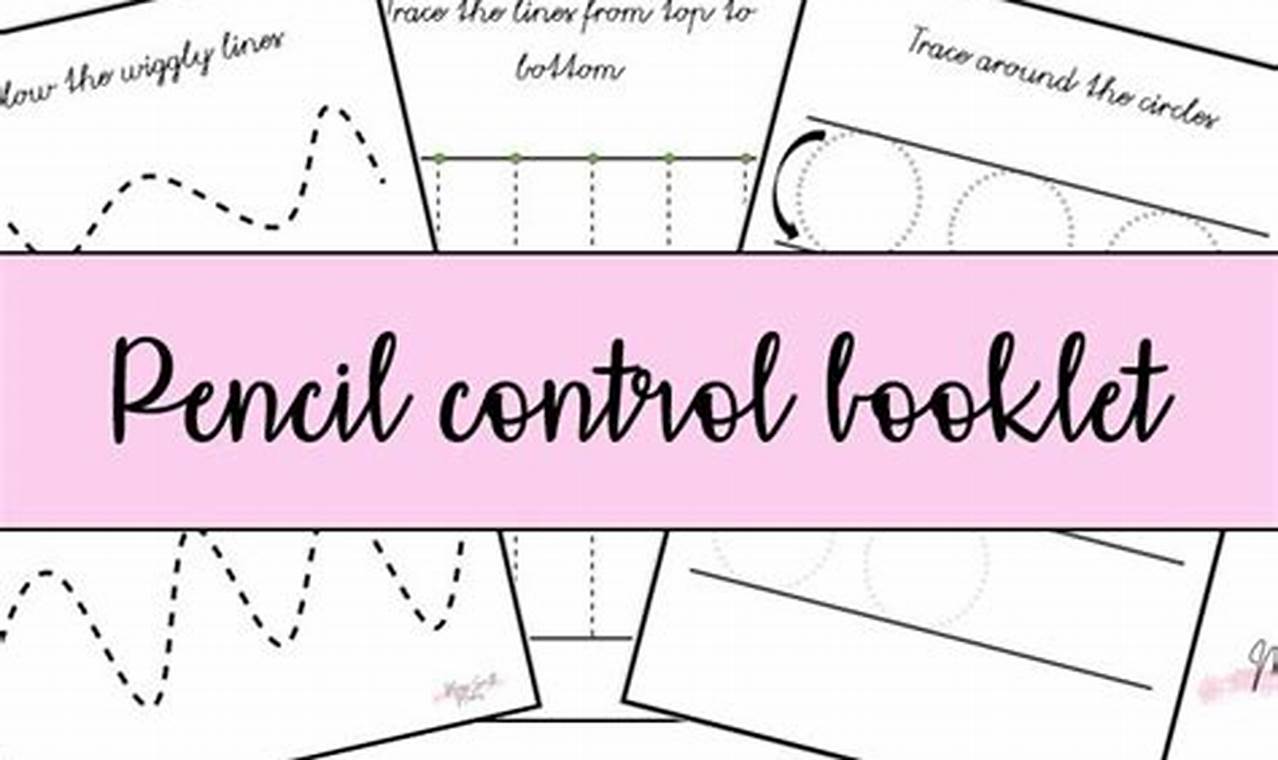Early childhood development relies heavily on strengthening fine motor skills. These skills, involving the small muscles of the hands and fingers, are essential for everyday tasks such as writing, drawing, and using utensils. A “printable tracing booklet for fine motor” provides a structured and engaging way to help children develop these crucial skills, laying a strong foundation for academic success and independence.
The primary benefit of using a printable tracing booklet for fine motor skill development lies in its ability to improve hand-eye coordination and muscle control. Regularly practicing tracing activities enhances a child’s ability to accurately follow lines and shapes. This, in turn, leads to improved handwriting, drawing precision, and dexterity in manipulating small objects. Additionally, these booklets often aid in pre-writing skills, helping children recognize and form the basic shapes and lines that make up letters and numbers.
A typical printable tracing booklet for fine motor includes a variety of exercises designed to progressively challenge a child’s abilities. It may start with simple straight lines and curves, gradually introducing more complex shapes, letters, and numbers. Many booklets incorporate dotted lines that children can trace over, building confidence and muscle memory. Furthermore, engaging illustrations and themes are often included to maintain a child’s interest and motivation throughout the learning process. Ample space is usually provided for repeated practice.
To effectively utilize a printable tracing booklet for fine motor skill development, begin by creating a comfortable and distraction-free environment. Provide the child with a comfortable writing tool, such as a thick pencil or crayon, which is easier for small hands to grip. Start with the simpler tracing exercises, gradually moving to more complex patterns as the child gains confidence. Encourage the child to focus on accuracy rather than speed. Offer positive reinforcement and praise for effort and improvement. Breaks should be incorporated to avoid fatigue and maintain engagement.
To further enhance fine motor skills, consider incorporating complementary activities alongside the printable tracing booklet for fine motor exercises. Kidtraces.com offers a range of related printable worksheets that target different aspects of fine motor development. Educational games that involve building, sorting, or manipulating small objects can also be beneficial. Daily activities such as buttoning clothes, zipping zippers, and using scissors provide practical opportunities to strengthen fine motor skills in everyday contexts.
In conclusion, a printable tracing booklet for fine motor skills offers a valuable and accessible tool for fostering essential early childhood development. By providing structured practice and engaging activities, these booklets help children develop hand-eye coordination, muscle control, and pre-writing skills. Parents and educators are encouraged to download and utilize these resources to support continuous learning and skill development. Explore more free worksheets on Kidtraces.com to further enhance a child’s fine motor abilities and prepare them for future academic success.
Images References :
Looking for more useful options?
Check out recommended resources that others find helpful.
